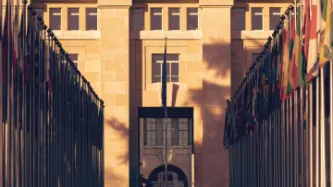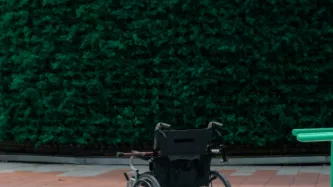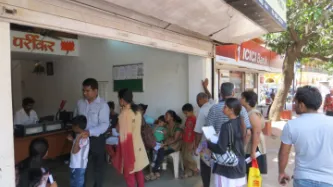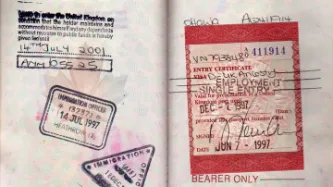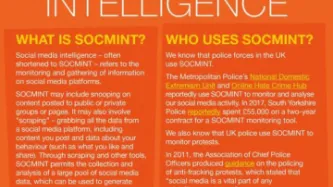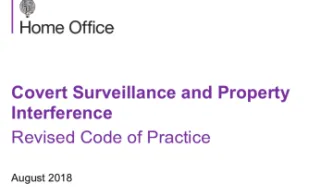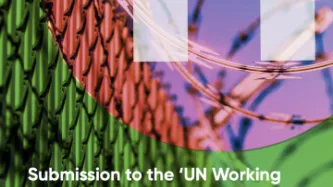Search
Content type: Advocacy
In an increasingly digitised world, automation, artificial intelligence and sensitive data processing present new and rapidly shifting challenges which underscore the urgent need for states to ensure that the rights of persons with disabilities are explicitly addressed and centred when it comes to the use of data and technology. Digital technologies can offer important opportunities for accessibility and the realisation of human rights of persons with disabilities, but can also present…
Content type: Advocacy
Privacy International has joined several UK civil society organisations from across sectors in expressing our deep concerns regarding the financial surveillance powers proposed in the UK Data Protection and Digital Information Bill (DPDI Bill). Specifically outlined in Clause 128 and Schedule 11, these measures introduce mass algorithmic surveillance aimed at scrutinizing bank and third-party accounts to purportedly detect welfare fraud and errors. In other words, the Department for Work…
Content type: Long Read
Our world is undergoing a seismic process of increasing digitisation, which sees the proliferation of new technologies and the growing integration of these technologies into public services, which rely more and more on copious amounts of personal data and on automated processes. This phenomenon has a unique impact upon the rights of persons with disabilities. As the era of global digitisation causes societies worldwide to undergo a digital metamorphosis, persons with…
Content type: Advocacy
Our submission focussed on the evolving impacts of (i) automated decision-making, (ii) the digitisation of social protection programmes, (iii) sensitive data-processing and (iv) assistive technologies in the experiences and rights of people with disabilities.We called on the OHCHR to:Examine the impact that growing digitisation and the use of new and emerging technologies across sectors has upon the rights of persons with disabilities;Urge states to ensure that the deployment of digital…
Content type: Advocacy
PI welcomes the opportunity to engage once again with the mandate by submitting comments, evidence, and recommendations to the UN Special Rapporteur on the right to health, Ms. Tlaleng Mofokeng. We hope that our input will contribute to the forthcoming report, “Digital innovation, technologies and the right to health”.
Technology has contributed significantly to the planning and delivery of health information, services and care. We have seen the use of data and technology across the healthcare…
Content type: Long Read
In the UK, successive government ministers and members of parliament have made emotive proclamations about the malaise of "public sector fraud".
This year, former Work and Pensions Secretary Therese Coffey said that the welfare system "is not a cash machine for callous criminals and it’s vital that the government ensures money is well spent...[and] fraud is an ever-present threat."
In 2013, the UK's minister for the disabled made numerous claims that there were "vast numbers of bogus disabled […
Content type: Long Read
This piece was last updated in June 2021.
In many countries, access to social protection (such as welfare programmes or healthcare) is made conditional on producing a form of identification (“ID”). But obtaining a recognised and accurate ID is often a process riddled with discriminatory designs, bureaucracy and technical failures that prevent individuals from accessing the services they are entitled to. Even when people eventually get an ID, it might not accurately reflect who they are,…
Content type: Video
Content warning: this episode includes some disturbing stories of people who have died after having their benefits cut or withdrawn by the UK Department of Work and Pensions
Links
Find out more about the DWP's surveillance
Find out more about the DWP's alogrithim
You can find out more about each of the cases of people who died after their benefits withdrawn below:
Errol Graham
The 5,000
Jodey Whiting
Phillipa Day
David Clapson
If you're having problems navigating the UK's…
Content type: Advocacy
Last week, Privacy International joined more than 30 UK charities in a letter addressed to the British Prime Minister Boris Johnson, following his recent declaration, asking him to lift No Recourse to Public Funds (NRPF) restrictions.
Since 2012, a ‘NRPF condition’ has been imposed on all migrants granted the legal right to live and work in the UK. They are required to pay taxes, but they are not permitted to access the public safety net funded by those taxes.
This is not a topic we are known…
Content type: Report
It is common for families with no recourse to public funds who attempt to access support from local authorities to have their social media monitored as part of a 'Child in Need' assessment. This practice appears to be part of a proactive strategy on the part of local authorities to discredit vulnerable families in order to refuse support. In our experience, information on social media accounts is often wildly misinterpreted by local authorities who make serious and unfounded allegations…
Content type: Explainer
Social media platforms are a vast trove of information about individuals, including their personal preferences, political and religious views, physical and mental health and the identity of their friends and families.
Social media monitoring, or social media intelligence (also defined as SOCMINT), refers to the techniques and technologies that allow the monitoring and gathering of information on social media platforms such as Facebook and Twitter which provides valuable intelligence to others…
Content type: Long Read
Dear Sir/Madam,
Freedom of information act request
RE: Social media monitoring / social media intelligence
FOIA REQUEST
For definition of social media intelligence please see background explanation below. We further note the comments of the Office of Surveillance Commissioners Annual Report 2016 cited below.
1. In 2016 the Rt Hon Lord Judge, then Chief Surveillance Commissioner, wrote to all Local Authorities regarding use of social media in investigations. Please confirm whether you are…
Content type: Report
SUMMARY
In the UK, local authorities* are looking at people’s social media accounts, such as Facebook, as part of their intelligence gathering and investigation tactics in areas such as council tax payments, children’s services, benefits and monitoring protests and demonstrations.
In some cases, local authorities will go so far as to use such information to make accusations of fraud and withhold urgently needed support from families who are living in extreme poverty.
THE PROBLEM
Since 2011…
Content type: Long Read
Online covert activity
3.10 The growth of the internet, and the extent of the information that is now available online, presents new opportunities for public authorities to view or gather information which may assist them in preventing or detecting crime or carrying out other statutory functions, as well as in understanding and engaging with the public they serve. It is important that public authorities are able to make full and lawful use of this information for their statutory purposes. Much…
Content type: Long Read
The Chief Surveillance Commissioner, The Rt Hon Sir Christopher Rose’s Annual Report 2011 - 12 did not refer to social networks but to overt investigations using the internet as a surveillance tool, stating that:
“5.17 A frequent response to my Inspectors’ enquiries regarding a reduction in directed surveillance is that ‘overt’ investigations using the Internet suffice. My Commissioners have expressed concern that some research using the Internet may meet the criteria of directed…
Content type: Advocacy
Privacy International responded to the call for submissions of the Working Group on the use of mercenaries as a means of violating human rights and impeding the exercise of the rights of peoples to self-determination on role of private military and security companies in immigration and border management and the impact on the protection of the rights of all migrants.
This submission builds on PI’s research and reporting highlighting examples of the involvement of private companies in…
Content type: Video
We can’t believe we’re having to say this, but the hours after giving birth are private. If you’re a parent, you may have heard of Bounty, a sales and marketing company allowed access to hospital maternity wards and approach women who have just given birth. This doesn’t happen on any other hospital ward. Can you imagine coming round from major surgery to find a stranger trying to sell you stuff? The physical invasion of privacy is bad enough, but delving into the company’s relationship with…
Content type: Advocacy
TEDIC, InternetLab, Derechos Digitales, la Fundación Karisma, Dejusticia, la Asociación por los Derechos Civiles y Privacy International acogen el llamado de la Relatoría Especial sobre Derechos Económicos, Sociales, Culturales y Ambientales (DESCA) de la Comisión Interamericana de Derechos Humanos (CIDH) de enviar información para la elaboración del Informe Anual sobre DESCA del año 2019, que se presentará ante la Organización de los Estados Americanos (OEA) en 2020.
El objeto de este…
Content type: Advocacy
TEDIC, InternetLab, Derechos Digitales, Fundación Karisma, Dejusticia, Asociación por los Derechos Civiles and Privacy International welcome the call made by the Special Rapporteurship on Economic, Social, Cultural and Environmental Rights (ESCER) of the Inter-American Commission on Human Rights (IACHR) to inform the preparation of the Annual Report of the ESCER for the year 2019, which will be presented to the Organization of American States (OAS) during 2020.
This submission aims to outline…
Content type: Long Read
This research is the result of a collaboration between Grace Tillyard, a doctoral researcher in the Media, Communications and Cultural Studies department at Goldsmiths College, London, and Privacy International.
Social Protection Systems in the Digital Age
In the digital age, governments across the world are building technologically integrated programmes to allow citizens to access welfare payments. While smart and digital technologies hold the potential to streamline administrative…
Content type: News & Analysis
By Ailidh Callander, Legal Officer
This piece first appeared in the 500th edition of the Scottish Legal Action Group Journal (2019 SCOLAG (500, June) 124
Political scandal, stronger regulation on privacy but what about social protection?
In an increasingly digitalised and data driven world, an era of government and corporate mass data exploitation, the right to privacy and data protection and what this means in practice is more important than ever. Surveillance is a power generator and…
Content type: Explainer graphic
You can also read a more detailed explainer about social media intelligence (SOCMINT) here.
